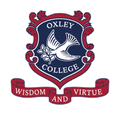From the Principal

Dear Friends,
In the closing moments of this academic term, it is fitting to extend congratulations to students who have been diligently engaged in their final studies, examinations, and the numerous co-curricular activities that enrich their educational journey at Oxley Christian College. As we approach the last school day of the term, we hope that our students will continue to remain deeply involved in the programs and values that define our College.
At Oxley, our educational philosophy is guided by a set of core values that shape the intellectual and moral development of students. We are unwavering in our commitment to nurturing individuals to grow in their understanding of themselves as embodiments of truth, goodness, and beauty. These virtues, deeply rooted in the Christian tradition, have served as the central theme of our College life throughout this school year, drawing inspiration from the letter to the Philippians, Chapter 4.
Regrettably, the societal landscape of the present era seems to have moved away from these foundational principles, with truth appearing to be the most significant casualty. Among the various contributing factors to this predicament, one outstanding issue is the intertwining of personal identity with opinions. This phenomenon finds its battleground on the expansive realm of social media, where opaque disinformation campaigns, often impossible to attribute, are forcefully amplified by automated bots.
During the challenging period of the global pandemic, we witnessed an abundance of self-proclaimed epidemiologists offering their perspectives on lockdowns and vaccine science. Similarly, the recent conflict in Gaza has generated an influx of amateur historians attempting to expound upon the historical complexities surrounding Israel. These instances serve as poignant reminders of the fragmentary and contextually deficient facts inundating us from around the world and their detrimental impact on our collective social and political influence. It is evident that the proliferation of opinions is fundamentally altering the fabric of our society. Regrettably, there seems to be no tragedy so profound that it cannot be exploited as a foundation for misguided and pretentious self-assertions. We find ourselves ensnared in a world of hubristic opinions while knowing that being required to hold an opinion has never really helped anyone.
The root of our contemporary dilemma lies in a complex tribal link between opinions and personal identity. In a society where traditional religious or communal affiliations have waned in influence, these tribal links having no impartiality have become central to the role of shaping our sense of self. While we may assume that we are tolerant about matters of race, gender, and religion, our tolerance for differing opinions appears to be considerably more limited. In a culture that exalts the virtue of self-expression, opinions have acquired an inflated social status. It is crucial, however, that we remember that facts, when considered within their proper context, should always be used to inform opinion. Moreover, silence, when guided by wisdom, often surpasses absent-minded views. Otherwise, the very essence of truth is jeopardised, and we risk becoming a society increasingly diminished by the open embrace of falsehoods.
Warm regards,
Dr Douglas Peck
Principal

